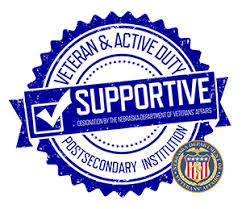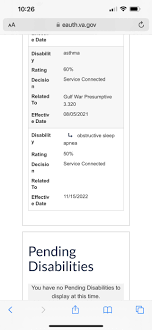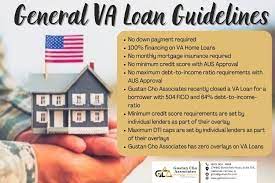The Veterans Administration (VA) provides a wide range of benefits to veterans and their families. These benefits are designed to help veterans access the care, support, and resources they need to live healthy, fulfilling lives after their service.
One of the most significant benefits offered by the VA is healthcare. The VA offers a comprehensive healthcare system that includes primary care, specialty care, mental health services, and more. Veterans can access these services at VA medical centers and clinics across the country. Additionally, veterans who are unable to travel to a VA facility may be eligible for home-based care or telehealth services.
Another important benefit offered by the VA is disability compensation. This benefit is available to veterans who have been injured or become ill as a result of their military service. Disability compensation can help cover medical expenses related to service-connected disabilities and provide financial support for veterans who are unable to work due to their injuries.
The VA also offers education and training benefits for veterans who want to pursue higher education or learn new skills. These benefits include tuition assistance, vocational rehabilitation and employment services, and on-the-job training programs.
For veterans who need assistance with housing, the VA provides several options. The VA has programs that can help veterans purchase homes or refinance existing mortgages at lower rates. The VA also offers grants for disabled veterans to make necessary modifications to their homes to accommodate their disabilities.
Finally, the VA provides a range of other benefits designed to support veterans and their families. These include life insurance programs, pension programs for low-income veterans and surviving spouses, burial benefits including headstones and markers for gravesites.
To access these benefits, veterans must apply through the VA’s website or in person at a regional office or medical center. While navigating the application process can be challenging at times, there are many resources available to help guide veterans through it.
In conclusion, the Veterans Administration offers an array of valuable benefits that can make a significant difference in the lives of veterans and their families. If you are a veteran, it is important to explore the benefits available to you and take advantage of them to ensure you receive the care and support you deserve.
FAQs on Veterans Administration Benefits: Everything You Need to Know
- How do I apply for veterans benefits?
- What types of benefits are available to veterans?
- How do I check the status of my benefits application?
- Who is eligible for veterans benefits?
- How long does it take to process a veterans benefit claim?
- What documents are needed to apply for veterans benefits?
- Can I transfer my benefits to another person or family member?
- Where can I find more information about VA health care and other services available to veterans?
How do I apply for veterans benefits?
To apply for veterans benefits, you can follow these steps:
Determine your eligibility: The first step is to determine if you are eligible for veterans benefits. Eligibility criteria vary depending on the benefit you are applying for, but generally, veterans who served in active duty and were discharged under conditions other than dishonorable may be eligible.
Gather necessary documents: You will need to gather necessary documents that prove your eligibility and support your claim. These may include discharge or separation papers (DD214), medical records, marriage certificates, birth certificates of children, and more.
Choose the benefit you want to apply for: There are various benefits available to veterans, such as healthcare benefits, disability compensation, education and training benefits, home loan benefits, and more. Determine which benefit you want to apply for based on your needs.
Apply online or in person: You can apply for veterans benefits online through the VA’s website or in person at a regional office or medical center. The application process varies depending on the benefit you are applying for.
Wait for a decision: After submitting your application, it may take some time before you receive a decision from the VA. The length of time can vary depending on the complexity of your case and the type of benefit you are applying for.
Appeal if necessary: If your application is denied or if you disagree with the decision made by the VA, you have the right to appeal. You can file an appeal with the Board of Veterans’ Appeals within one year of receiving a decision.
In conclusion, applying for veterans benefits can be a complex process that requires careful attention to detail and patience. However, there are many resources available to help guide you through it and ensure that you receive the care and support that you deserve as a veteran.
What types of benefits are available to veterans?
There are a wide range of benefits available to veterans, depending on their individual circumstances and needs. Here are some of the most common types of benefits available through the Veterans Administration (VA):
Healthcare: The VA provides a comprehensive healthcare system that includes primary care, specialty care, mental health services, and more.
Disability compensation: This benefit is available to veterans who have been injured or become ill as a result of their military service. Disability compensation can help cover medical expenses related to service-connected disabilities and provide financial support for veterans who are unable to work due to their injuries.
Education and training: The VA offers tuition assistance, vocational rehabilitation and employment services, and on-the-job training programs for veterans who want to pursue higher education or learn new skills.
Housing assistance: The VA has programs that can help veterans purchase homes or refinance existing mortgages at lower rates. The VA also offers grants for disabled veterans to make necessary modifications to their homes to accommodate their disabilities.
Life insurance: The VA provides life insurance programs for eligible veterans and their families.
Pension programs: The VA offers pension programs for low-income veterans and surviving spouses.
Burial benefits: The VA provides burial benefits including headstones and markers for gravesites.
Vocational rehabilitation: This program helps disabled veterans prepare for, find, and keep suitable jobs.
Dependents’ education assistance: This program provides education and training opportunities to eligible dependents of certain veterans.
Homeless veteran services: The VA provides a range of services to help homeless veterans get back on their feet, including housing assistance, employment support, healthcare services, and more.
It’s important for veterans to explore the benefits available to them based on their individual situations. Veterans can apply for these benefits through the VA’s website or in person at a regional office or medical center.
How do I check the status of my benefits application?
To check the status of your benefits application with the Veterans Administration (VA), there are several options available to you. Here are a few ways to check the status of your application:
Online: You can check the status of your application online by logging into your account on the VA’s website. If you haven’t created an account yet, you can do so by visiting the VA’s eBenefits website and following the instructions to register.
Phone: You can call the VA’s toll-free number at 1-800-827-1000 to check the status of your application. Be prepared to provide your social security number or VA file number when you call.
In-person: You can visit a local VA regional office to check on the status of your application in person. To find a regional office near you, visit the VA’s website and use their facility locator tool.
When checking on your benefits application, it is important to have certain information available, such as your social security number or VA file number, as well as any correspondence or documentation related to your application.
It is also important to keep in mind that processing times for benefits applications can vary depending on several factors, including the type of benefit you are applying for and the complexity of your case. If you have questions about your application or need additional assistance, consider reaching out to a Veterans Service Organization (VSO) or other veteran advocacy group for support.
Who is eligible for veterans benefits?
Eligibility for veterans benefits depends on several factors, including the type of benefit being sought and the veteran’s military service history. Generally, veterans who have served on active duty in the United States Armed Forces and were discharged under conditions other than dishonorable may be eligible for benefits.
Some benefits may require a minimum length of service or specific dates of service, such as wartime service. For example, to be eligible for VA healthcare benefits, a veteran must have served in active military service and received a discharge other than dishonorable.
In addition to veterans themselves, some benefits are available to their spouses, dependents, and survivors. For example, surviving spouses may be eligible for survivor’s pension benefits or education assistance under certain circumstances.
It is important to note that eligibility requirements can vary depending on the specific benefit being sought. Veterans can check their eligibility for specific benefits by visiting the VA’s website or contacting their local VA regional office.
Overall, if you are a veteran or a family member of a veteran and are unsure about your eligibility for veterans benefits, it is recommended that you reach out to the VA or an accredited Veterans Service Organization (VSO) for assistance in determining your eligibility and navigating the application process.
How long does it take to process a veterans benefit claim?
The processing time for a veterans benefit claim can vary depending on several factors, such as the type of benefit being claimed, the complexity of the case, and the number of claims being processed by the VA at any given time.
According to the VA’s website, the average processing time for a disability compensation claim in 2021 is approximately 95 days. However, this timeframe can vary widely based on individual circumstances. Some claims may be processed more quickly if they are straightforward and require less documentation or evidence. Other claims may take longer if they are more complex or require additional information or medical exams.
It is important to note that the VA has implemented several initiatives in recent years aimed at reducing processing times and improving overall efficiency. These initiatives include streamlining processes, increasing staffing levels, and implementing new technologies to improve communication and data sharing.
Veterans can check the status of their claims online through the VA’s eBenefits portal or by calling their regional VA office. If a claim is taking longer than expected, veterans can contact their local Veterans Service Organization (VSO) for assistance in navigating the process.
In summary, while there is no definitive answer to how long it takes to process a veterans benefit claim, veterans can expect an average processing time of around 95 days for disability compensation claims. However, this timeframe can vary depending on individual circumstances and other factors. Veterans should stay informed about their claim status and seek assistance from VSOs if needed to help ensure timely processing of their benefits claims.
What documents are needed to apply for veterans benefits?
The documents needed to apply for veterans benefits can vary depending on the specific benefit being applied for. However, there are some common documents that are typically required for most benefits applications. These may include:
- Proof of military service: This can include a DD Form 214 (Certificate of Release or Discharge from Active Duty) or other official military records that show proof of service.
- Medical records: For disability compensation claims, medical records are often required to show evidence of a service-connected injury or illness.
- Marriage certificate and/or divorce decree: If a veteran is applying for benefits for their spouse or dependent children, they may need to provide marriage certificates and/or divorce decrees to prove eligibility.
- Birth certificate and/or adoption papers: If a veteran is applying for benefits for their dependent children, they may need to provide birth certificates or adoption papers to prove eligibility.
- Financial information: For some benefits, such as VA pension programs, financial information may be required to determine eligibility and benefit amounts.
- Death certificate: If a surviving spouse or dependent child is applying for survivor benefits, they will need to provide a death certificate as proof of the veteran’s passing.
It’s important to note that each benefit program has its own set of requirements and documentation needed for application. Veterans should consult with the VA or a Veterans Service Officer (VSO) to ensure they have all the necessary documents before submitting an application.
Can I transfer my benefits to another person or family member?
In some cases, veterans may be able to transfer their benefits to a family member. The Post-9/11 GI Bill allows eligible service members to transfer their unused education benefits to their spouse or dependent children. However, there are specific requirements that must be met in order to transfer these benefits, including having served for at least six years and agreeing to serve an additional four years in the military.
Other VA benefits, such as disability compensation or healthcare benefits, cannot be transferred to another person or family member. These benefits are specifically designed to support the veteran who earned them and cannot be assigned or transferred.
It is important for veterans and their families to understand the specific rules and regulations surrounding VA benefits and transfers. The VA website provides detailed information about each benefit program and eligibility requirements. Additionally, veterans can contact their local VA office or speak with a Veterans Service Officer for guidance on how best to utilize their benefits.
Where can I find more information about VA health care and other services available to veterans?
There are several resources available to veterans who are looking for more information about VA healthcare and other services. Here are a few options:
- VA.gov: The official website of the Department of Veterans Affairs provides detailed information about all of the benefits and services available to veterans, including healthcare, education and training, disability compensation, and more.
- VA Medical Centers: The VA operates medical centers and clinics across the country that provide healthcare services to eligible veterans. You can find a list of VA medical centers on the VA’s website.
- Veterans Service Organizations (VSOs): VSOs such as the American Legion, Disabled American Veterans (DAV), and Veterans of Foreign Wars (VFW) can provide assistance with navigating the VA benefits system and accessing services.
- State Department of Veterans Affairs: Many states have their own Department of Veterans Affairs that can provide additional resources and support to veterans in their state.
- My HealtheVet: My HealtheVet is an online portal that allows veterans to access their health records, refill prescriptions, schedule appointments, and communicate with their healthcare providers.
- Vet Centers: The VA operates Vet Centers across the country that provide counseling and support services to combat veterans and their families.
By utilizing these resources, veterans can learn more about the benefits available to them through the VA and access the care they need to live healthy, fulfilling lives after their service.




